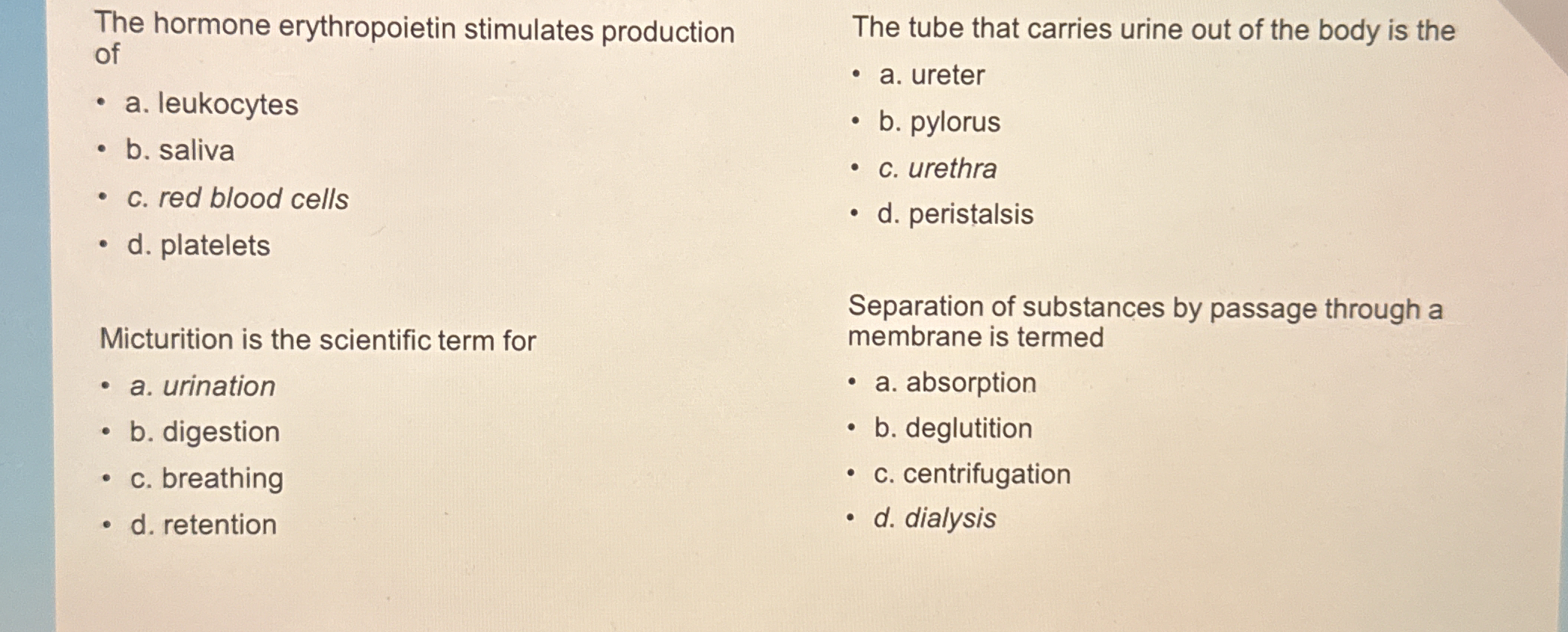The hormone erythropoietin stimulates production of: a. leukocytes, b. saliva, c. red blood cells, d. platelets; The tube that carries urine out of the body is the: a. ureter, b. p... The hormone erythropoietin stimulates production of: a. leukocytes, b. saliva, c. red blood cells, d. platelets; The tube that carries urine out of the body is the: a. ureter, b. pylorus, c. urethra, d. peristalsis; Separation of substances by passage through a membrane is termed: a. absorption, b. deglutition, c. centrifugation, d. dialysis; Mictruration is the scientific term for: a. urination, b. digestion, c. breathing, d. retention.

Understand the Problem
The question consists of multiple-choice questions related to biology and human physiology, focusing on topics such as the function of erythropoietin, the urinary system, and membrane processes.
Answer
Red blood cells; Urethra; Dialysis; Urination.
The hormone erythropoietin stimulates production of red blood cells. The tube that carries urine out of the body is the urethra. Separation of substances by passage through a membrane is termed dialysis. Micturition is the scientific term for urination.
Answer for screen readers
The hormone erythropoietin stimulates production of red blood cells. The tube that carries urine out of the body is the urethra. Separation of substances by passage through a membrane is termed dialysis. Micturition is the scientific term for urination.
More Information
Erythropoietin (EPO) is produced mainly by the kidneys and plays a crucial role in red blood cell production, which is vital for carrying oxygen throughout the body.
Tips
A common mistake is confusing the ureter (which connects the kidney to the bladder) with the urethra (which channels urine out of the body).
Sources
- Erythropoietin: Production, Purpose, Test & Levels - Cleveland Clinic - my.clevelandclinic.org
- Multiple Choice. Select the best answer and write the letter of your ... - msc-mu.com
AI-generated content may contain errors. Please verify critical information